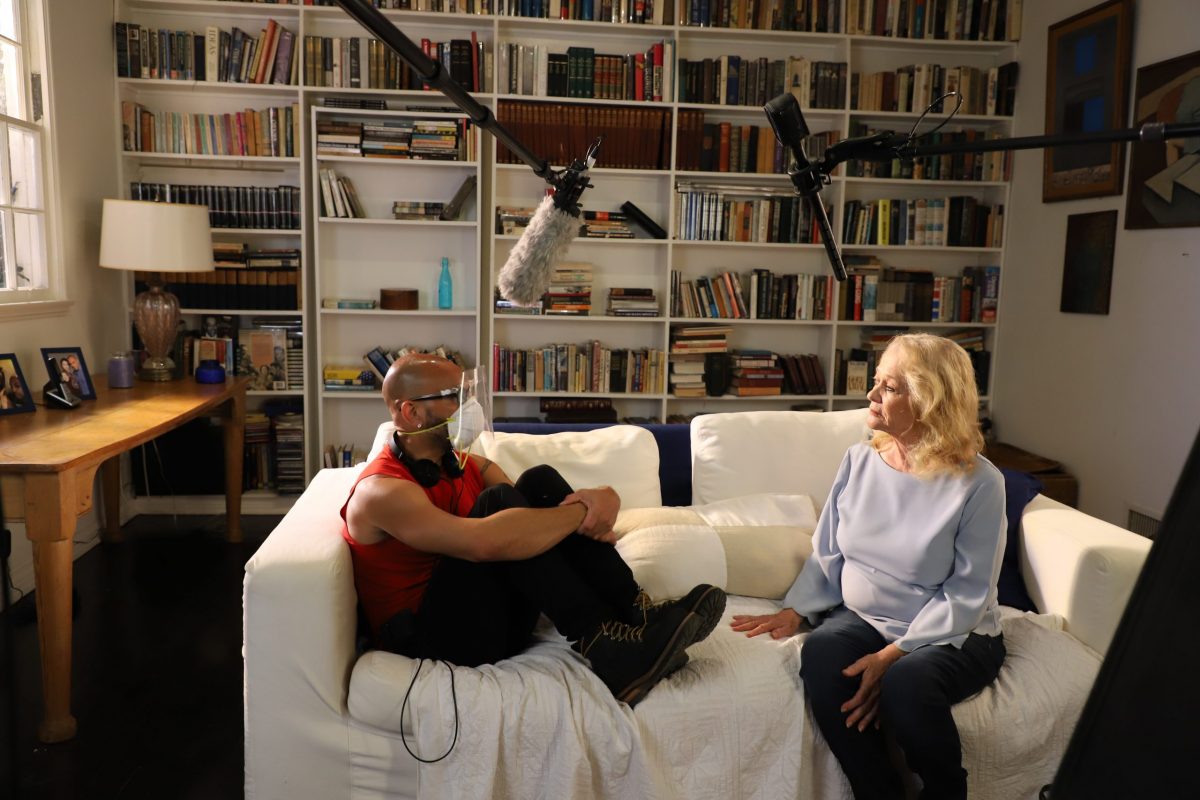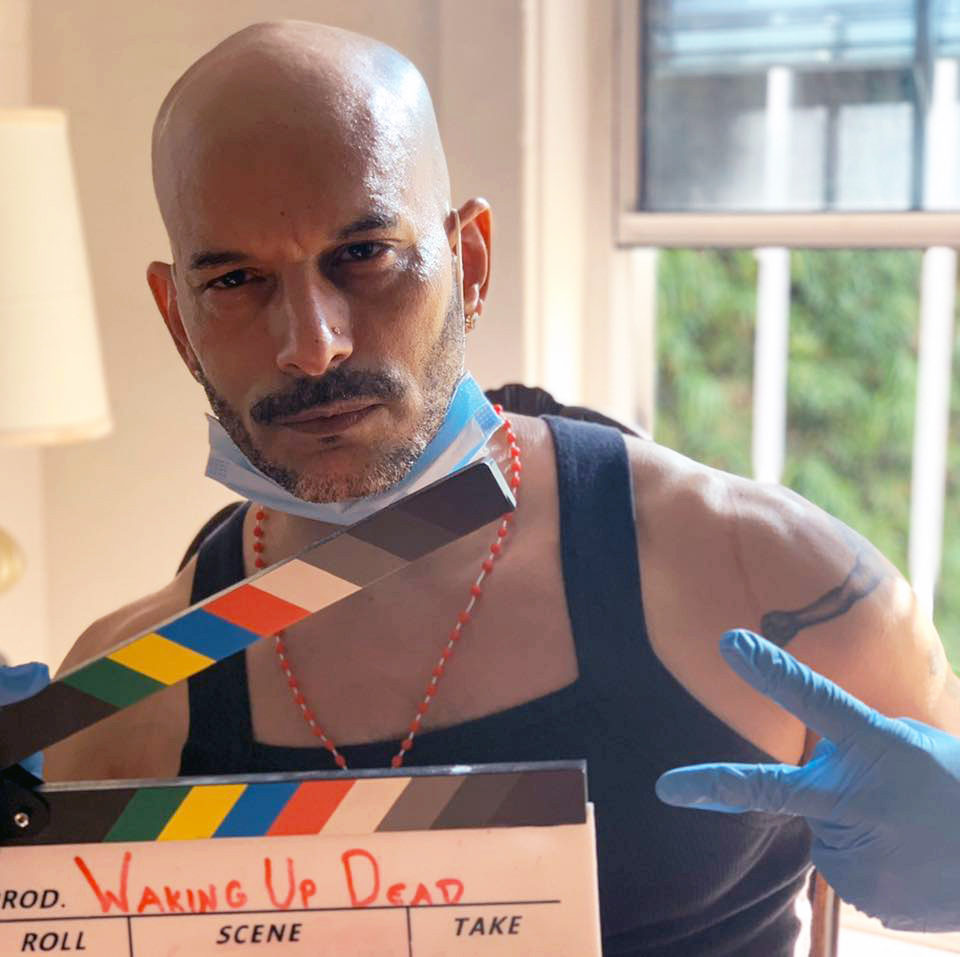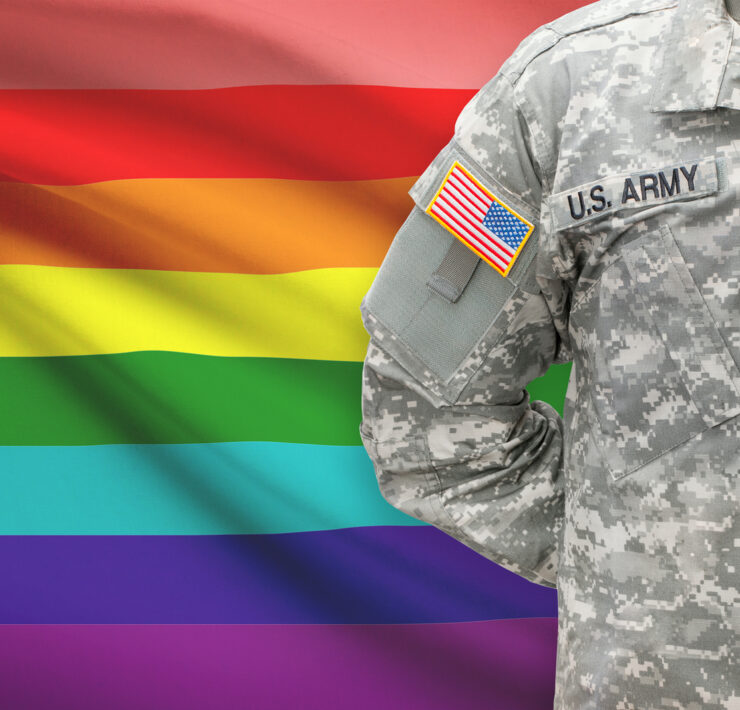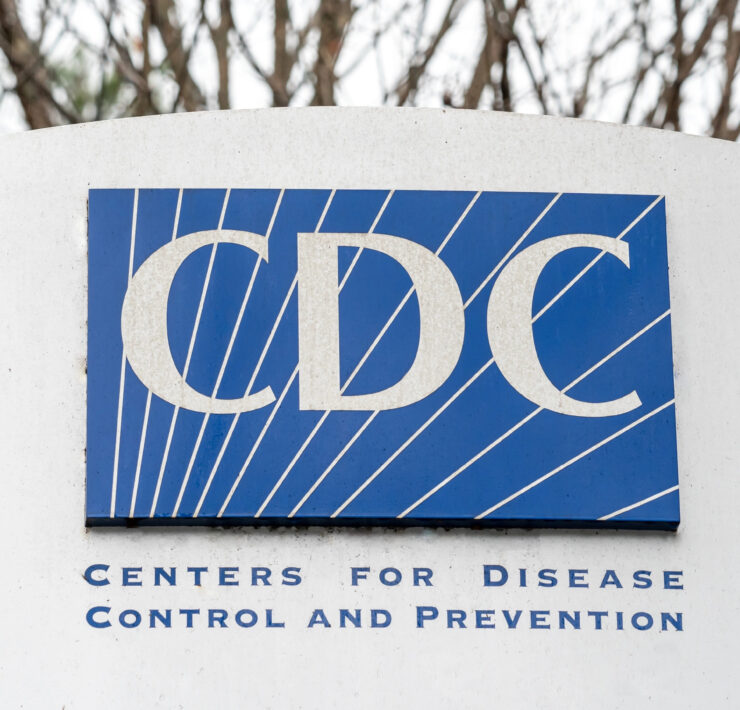Filming During COVID: Gary Terracino’s ‘Waking Up Dead’

Denny Patterson is a St. Louis-based entertainment and lifestyle journalist…
Gary Terracino, best known for his features Elliot Loves and My Polish Waiter, successfully wrapped up filming his latest project, Waking Up Dead, in September.
A LGBTQ-themed, dark comedy starring Gabriel Sousa, Traci Lords, and Judy Geeson, Waking Up Dead was shot and produced in Los Angeles when most of the entertainment industry was shut down. Although the COVID-19 pandemic has severely taken a toll on movies and entertainers, Terracino decided to move forward.
“I don’t think artists, especially artists of color, should be sitting on our hands right now,” he said. “I think we need to be adapting to the circumstance, shooting our stories, and getting them out there.”
The cast and crew complied with strict safety protocols, and Waking Up Dead was the only micro-budget film cleared by SAG to shoot in L.A. since the pandemic began. Terracino created this LGBTQ-themed, dark comedy out of $60K. Now, he has created a post-production, crowdfunding campaign in hopes of a 2021 festival debut.
Terracino took some time to talk with OUT FRONT about the film, shooting in the middle of a global pandemic, and how a sexual harassment complaint contributed to the creation of Waking Up Dead. Hi, Gary! Thank you for taking some time to chat with me about your new film, Waking Up Dead. Can you tell us more about it?
Hi, Gary! Thank you for taking some time to chat with me about your new film, Waking Up Dead. Can you tell us more about it?
Waking Up Dead concerns an actor, a 35-year-old, gorgeous, stud of an actor, who has been too much of a partier and too self-destructive, and his life hits bottom. His boyfriend dumps him and throws him out, and he has not booked an acting gig in two years. He was once the hot up-and-comer in L.A.; his claim to fame was five years earlier when he played a narcoleptic rapist on Law & Order SVU, which is based on a true story because my friend Robin de Jesús played a narcoleptic rapist on Law & Order.
I remember Robin saying he’s a rapist, but not a totally bad one because he is a narcoleptic one, and I thought that was so brilliant. I have to use that at some point. So, he hits bottom, and he is house-sitting for a friend, and he is close to ending it all because everyone has finally given up on him. He finds out that he is up for a lead role in a new, Shonda Rhimes Netflix series. He has been called in to read for the lead, then he vows in the next three days to quit drugs, go sober, nail the audition, get the part, win his boyfriend back, and turn his life around.
Related Article: Shaun Melady: From the Corporate World to Showbiz
I heard that you used a sexual harassment settlement to partially finance the film, and that also led to Waking Up Dead’s concept and inspiration? Can you talk more about that?
Two years ago, I was hired to write for a big cable series, but never started. I was told I was going to be hired; they sent the paperwork, but I never actually started. I was ghosted by the show. I felt it was because one of the big producers, I accused him of sexual harassment a year earlier. It was a very ugly incident between the two of us, and other people were aware of it. That producer apologized to me in writing, but when I was up for this writing position a year later, I saw that he was a producer on it. I was not going to go in, but he contacted me to assure me that he was no longer working on the show.
However, when I went into the series and got hired, he was still there. In fact, he was in the room when I went to meet everybody, so I felt a little fucked with. Then I was never hired. I privately reached out to him and said it was my gut feeling that he was the reason why I was not hired. To be honest, it got very ugly and threatening between us. I was basically told to keep my fucking mouth shut, and a friend of mine was even told to tell me to keep my fucking mouth shut about the whole incident.
Six months later, the show got into massive trouble for its treatment of writers of color. I was written about in Hollywood Reporter, Variety, The New York Times. The show, and this was a major series, had abused a writer of color. Before I could even reach out, the studio called to settle things with me. That just goes to show that in Hollywood, everyone knows something, but they just wait until they are caught. They settled with me, and it was a very small settlement because I did not want to take legal action.
So, it is very relevant as to why I wrote this film about a guy going broke and flatlining in Hollywood, seemingly with no way out because it was what I was going through.
Why did you decide to film in the middle of the COVID-19 pandemic?
We were casting just as COVID hit. Traci Lords was our last actor to sign on, and she was very tough to get. As COVID hit, a lot of the cast and my producing partners were like, COVID is a great time to make this movie because it’s about being holed up in this house all by yourself, wanting to commit suicide. We felt that COVID really gave us an extra shot. All these publications were reaching out saying they were interested in learning why we decided to film a movie in the middle of a pandemic. It became a big boost for us. I believe that is how it works with artists. While other people are planted and sitting on their hands, I do not think that is when an artist should sit on their hands. Artists need to show the way forward. Were you able to stay on schedule?
Were you able to stay on schedule?
We had a slight delay because we were originally going to shoot in May, but we were able to shoot in September. Everybody was very cooperative, and we were literally one of the only films to shoot in L.A. during this time. So many projects fell apart and are never going to come back.
You had a $60K microbudget for the film?
Yes. Insurance issues for our microbudget film are not as burdensome as they are for, like, a $200 million, Marvel film. Hollywood projects cannot have 200 to 300 cast, and crew members that are going to shoot all over the world. It is just too difficult right now. Our film was a micro-budget and was largely single location, had only two actors in any scene, and it was very doable for COVID.
The larger picture, and this is a key point, wherever you go here in L.A., everyone who is still out there working is Black and Brown. They are people of color. Some are undocumented, so they are not getting unemployment, while others just have large families and need to work. The same thing with our movie; the cast and crew is almost entirely Black and Latino. I have been saying a bunch of Black and Brown artists are going to have to show Hollywood the way forward because we cannot all just be sitting on our hands waiting for things to be perfectly safe.
What were some of the major safety precautions and measures implemented?
We had a COVID supervisor on staff. They take everybody’s temperature when they arrive on set and at the end of the day to make sure no one is sick or getting sick. All the crew, myself included, wore masks and gloves, and we also had someone continuously disinfect the set. We did not go for fast service for everybody’s hair and makeup; it was all individualized. I joke saying we are going to be first film in history to have sex scenes featuring face masks, latex gloves, and 409 cleaner! It may extend our audience!
Related Article: Noemi Gonzalez as Suzette in Netflix’s ‘Selena: The Series’
From your point of view, how bad has the pandemic hit the entertainment industry?
I have never seen anything like it. I compare it to when sound came into films. There were a bunch of silent films that were shooting or had just shot, and they were all put on hold because everyone was trying to figure out how to put sound in them. A lot of actors instantly decided they were not suited for sound, and their contracts were canceled. The industry has not seen anything like this since the introduction of talking pictures because that instantly put projects on hold, and it killed a bunch of films and careers. Everybody was in a panic, and that is what COVID is like. Everybody is sitting around wondering what the hell is going to happen.
You believe lower budget productions will take the lead?
Yes. Low-budget projects will have to lead the way because they are simpler to shoot, quicker to shoot, and we do not have the same insurance. Again, insuring a $60K, micro-budget film that has 10 speaking roles is very different from having to insure a $200 million, Hollywood film with 50 speaking roles and a crew of 200. A very different scenario. What do you hope audiences take away from Waking Up Dead?
What do you hope audiences take away from Waking Up Dead?
Waking Up Dead is the story of what you need versus what you want. Danny is hot, gorgeous, and a partier, and he keeps doing that. He keeps thinking that if he does more of the same, it is going to work out. Even when he vows to turn things around, he does things exactly as he always does. So, I think that is a life lesson. We must learn the difference between what we need and what we want. As you mature, you realize there is a difference.
What have you personally taken away from the film?
I wanted to make a film that is sexy, politically incorrect, and that is a little provocative, but also has heart.
You are also known for your features, Elliot Loves, Boys in Love, and your short, My Polish Waiter, which played at Sundance. Have you always had a passion for filmmaking?
Yes. I started as an actor at NYU, and then transferred to film. I think my primary passion has always been writing. In truth, it is only recently that I have really connected with a passion for directing. When you asked what I want to get out of this film, I really want to launch my directing career because I have always been focused on being a writer.
Before we wrap up, are there any upcoming projects we should be on the lookout for?
I have a pilot about this gay kid who becomes a wrestling star in high school. The pilot has gotten a bunch of traction. So, after Waking Up Dead, I want to circle back and try to get that series sold.
To stay up-to-date with Terracino, follow him on Facebook. Waking Up Dead will be released in 2021. To donate to the film’s crowdfunding campaign, visit here.
Photos Courtesy of Waking Up Dead LLC
What's Your Reaction?
Denny Patterson is a St. Louis-based entertainment and lifestyle journalist who serves as OFM's Celebrity Correspondent. Outside of writing, some of his interests include traveling, binge watching TV shows and movies, reading (books and people!), and spending time with his husband and pets. Denny is also the Senior Lifestyle Writer for South Florida's OutClique Magazine and a contributing writer for Instinct Magazine. Connect with him on Instagram: @dennyp777.










